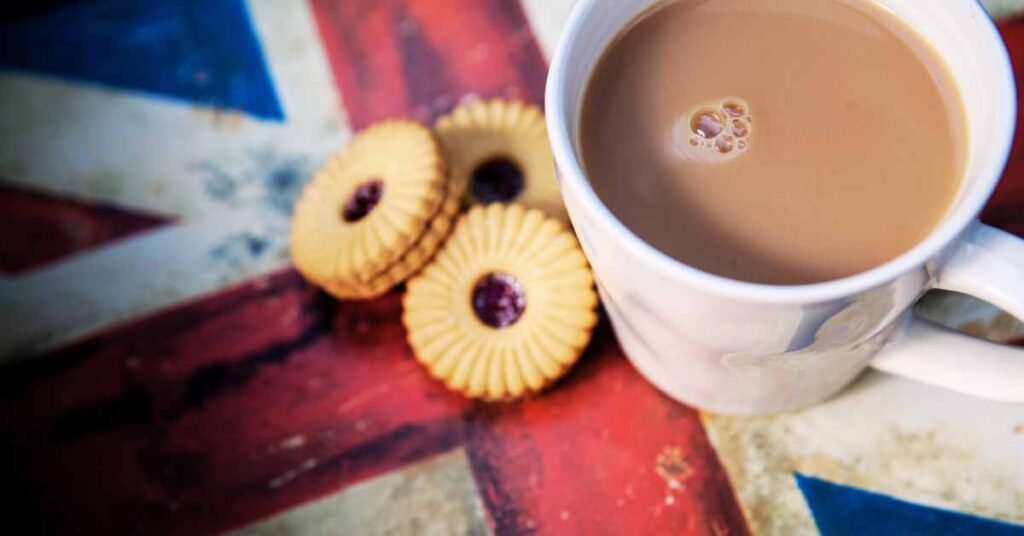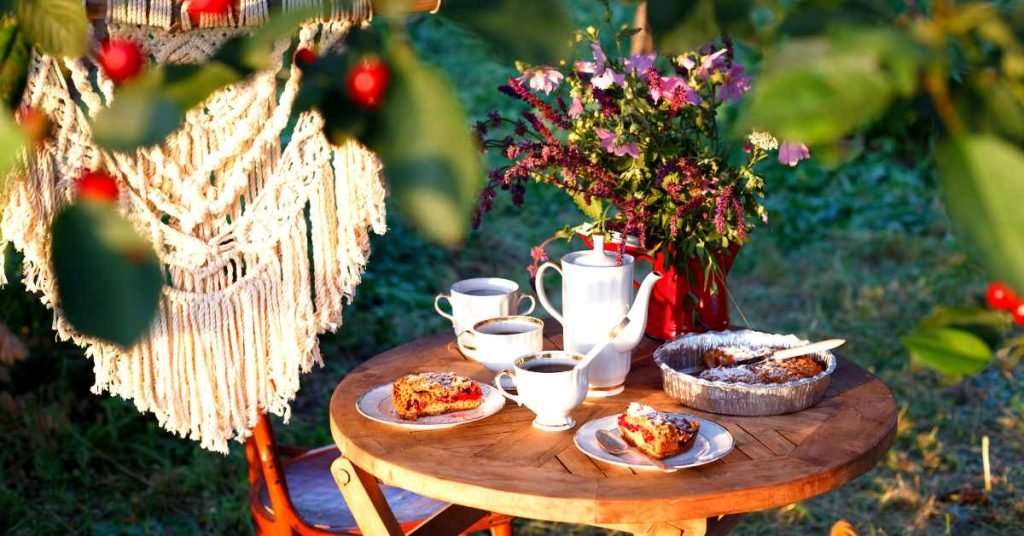In a land where the rain is as dependable as the King’s Guard and where the phrase “cuppa” is more sacred than Shakespearean verses, there lies a cultural phenomenon that has steeped its way into the hearts of the British people – tea.
The UK’s love affair with this hot, comforting elixir is no fleeting romance; it’s a full-blown, centuries-old commitment that defies logic, weather patterns, and possibly even the gravitational pull of the moon.
As the rest of the world may wonder why the British have embraced tea with such gusto, the answers are as diverse and rich as the blends found in a well-stocked pantry.
So, put the kettle on, grab your favorite biscuit, and let’s dive into the tea-rific tales of why tea is the reigning monarch of beverages in the United Kingdom.
The British Weather Conundrum

To understand the UK’s obsession with tea, one must first grapple with the unpredictable British weather.
Picture this: grey clouds looming ominously, drizzle dancing in the air, and a chill that sneaks through every layer of clothing.
In such moments, the British turn not to therapists or meteorologists but to the soothing embrace of a hot cup of tea.
Tea, with its warm and comforting nature, becomes a liquid shield against the gloominess outside.
It’s the steaming superhero that battles the elements and emerges victorious, leaving the drinker with a restored sense of equilibrium.
In the UK, rain may be constant, but tea is the reliable anchor that keeps spirits afloat.
The Social Rituals of Tea-Time
Tea in the UK is not merely a beverage; it’s a social glue that binds communities, bridges gaps, and turns strangers into friends.
Enter any British household, and you’re likely to be greeted with the question, “Fancy a cuppa?” This seemingly innocuous inquiry is the initiation into a realm of hospitality and camaraderie.
The ritual of tea-time transcends class, age, and social status. Whether you’re sipping Earl Grey with the Queen or sharing a builders’ brew with construction workers on a break, tea creates a level playing field.
It’s the great equalizer, a language spoken fluently by everyone from the elite to the everyday.
Tea’s magical ability to foster conversation and create connections has transformed it into the unofficial national beverage, celebrated daily in workplaces, homes, and even during the sacred afternoon tea ceremonies.
The kettle’s melodic hum is the background music to the symphony of shared stories, laughter, and occasionally, the subtle clinking of delicate china.
The Empire Strikes Tea
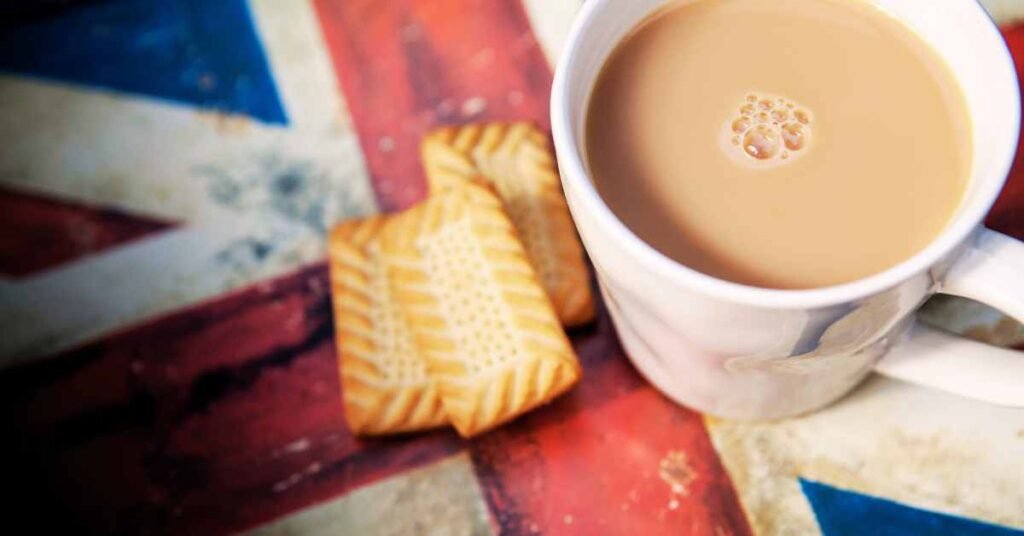
The origins of tea in the UK can be traced back to the 17th century, when Catherine of Braganza, a Portuguese princess, married Charles II. Catherine had a penchant for tea, and as the saying goes, “Happy wife, happy life.”
Thus, the aristocracy quickly adopted her love for the exotic beverage, and the rest of the nation soon followed suit.
During the heyday of the British Empire, tea became a symbol of refinement, a luxury accessible to those who could afford it.
The East India Company played a pivotal role in making tea a household staple, importing vast quantities from China and later India.
As tea plantations multiplied like rabbits across the British colonies, the love for tea cemented its place as an integral part of the nation’s identity.
Tea: A Potion for All Occasions
Tea in the UK is not just a one-size-fits-all affair. No, sir. It’s a versatile elixir that adapts to the whims and fancies of its consumers.
From the robust and no-nonsense builder’s brew to the delicate dance of Earl Grey with its citrusy notes, there’s a tea for every mood, moment, and malady. Consider the classic remedy for life’s woes – the ‘cuppa’.
Feeling under the weather? A cuppa. Celebrating a promotion? A cuppa. Heartbroken over a breakup?
You guessed it, a cuppa. The versatility of tea as both a remedy and a reward is unparalleled, making it the ultimate companion in life’s rollercoaster ride.
The Art of the Perfect Brew
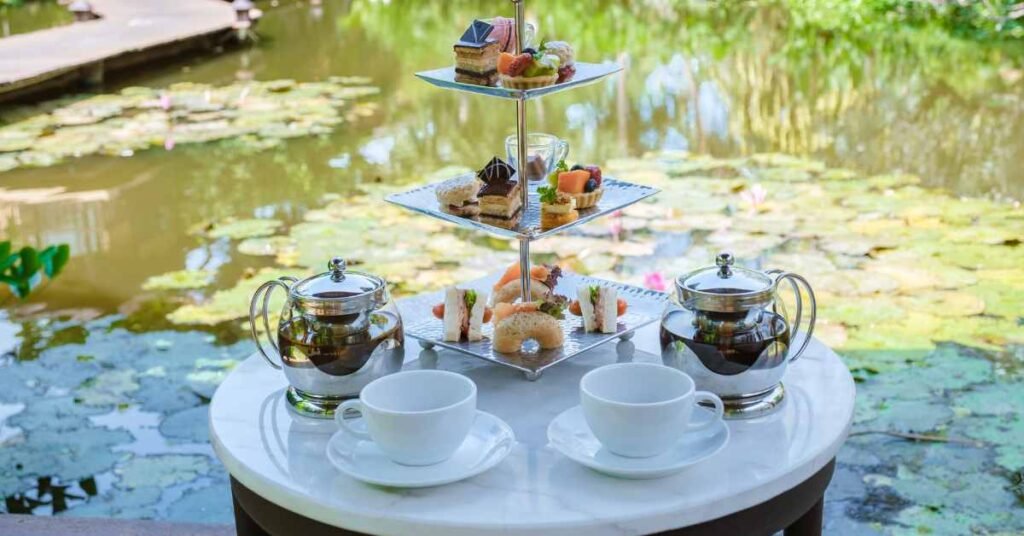
For the Brits, making the perfect cup of tea is not just a mundane task; it’s a sacred art form.
The nuances of brewing are passed down through generations, and woe betide anyone who messes with the sanctity of a good cuppa.
The water must be hot but not boiling, the milk added with precision, and the teabag left to steep for precisely the right amount of time.
The debate over whether to add milk before or after the tea has led to heated discussions (no pun intended) that rival parliamentary debates.
And heaven forbid you commit the cardinal sin of offering a weak cup to a tea enthusiast; you might find yourself banished to the metaphorical Tower of London.
The ‘Biscuit Dilemma’
If tea is the protagonist in this British love story, then biscuits are its trusty sidekick.
The pairing of tea and biscuits is so iconic that it borders on symbiotic. From the classic digestive to the humble rich tea, the choices are as varied as the British sense of humor.
However, the ‘biscuit dilemma’ is a contentious issue that divides the nation.
Dunking enthusiasts argue that the perfect cuppa is incomplete without the delicate art of dipping biscuits into the tea, creating a harmonious blend of flavors.
On the flip side, the anti-dunking brigade vehemently opposes any form of biscuit soggy-ness, preferring to keep their tea and biscuits on separate pedestals.
The Unwritten Etiquette of Tea-Drinking
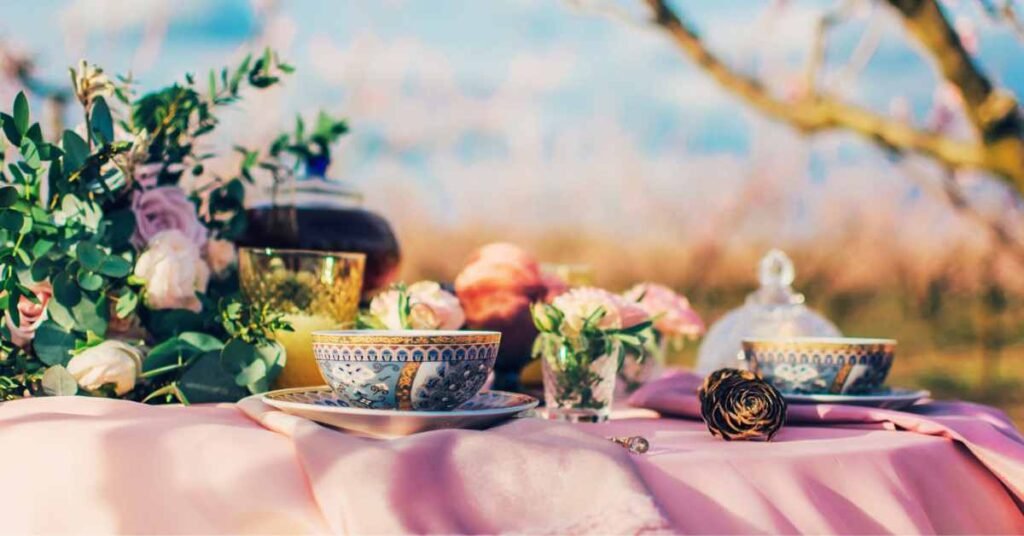
In the UK, the act of drinking tea is not a mere physical process; it’s a cultural performance with its own set of unwritten rules.
The famous ‘pinkie out’ stereotype may be a bit exaggerated, but the essence of refined etiquette remains.
Sipping tea with poise and elegance is a skill passed down through the generations, and nothing says ‘British’ more than someone gracefully holding a teacup with their little finger delicately raised.
Additionally, the ability to engage in meaningful conversation while navigating the delicate balance of holding a cup and saucer is an acquired skill.
It’s a social dance where the tea-drinker is both participant and observer, adding a layer of sophistication to the act of simply enjoying a cuppa.
Tea: A National Symbol of Resilience
Through wars, economic downturns, and societal shifts, tea has stood as a steadfast symbol of British resilience.
In times of crisis, the nation doesn’t turn to extravagant indulgences; it turns to the humble cup of tea. There’s a therapeutic quality in the act of brewing, pouring, and sipping tea that transcends its physical attributes.
Tea, in all its simplicity, becomes a source of comfort, a reassuring constant in a world that can often feel chaotic.
The notion that a cup of tea can solve anything might be a bit hyperbolic, but there’s a grain of truth in the sentiment. It’s the anchor that keeps the ship steady in the stormy seas of life.
In Conclusion: A Brew-tiful Love Affair
As we unravel the layers of the UK’s love affair with tea, it becomes clear that it’s more than just a beverage.
It’s a cultural cornerstone, a social ritual, and a source of comfort that has woven itself into the very fabric of British identity.
The symphony of the kettle’s whistle, the clink of teacups, and the laughter that accompanies each sip create a harmonious melody that resonates through time.
So, the next time someone questions the British obsession with tea, just smile knowingly and offer them a cuppa.
Because in that simple act lies the essence of a nation that has mastered the art of finding joy, solace, and community in the steam rising from a humble teacup.
Cheers to the UK’s enduring love affair with tea – a brew-tiful romance that shows no signs of cooling down.
MEDICAL DISCLAIMER
Itsnevernotteatime.com cannot and does not contain medical/health advice. The medical/health information is provided for general and educational purposes only and is not a substitute for professional advice.
